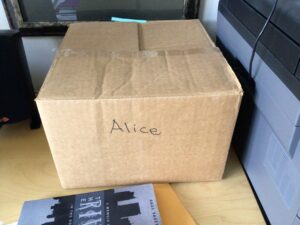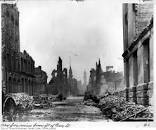So, if the election is a cancer diagnosis, what happens now? Again, I should know.
Like I said in Part One, for most of us, it’s too soon to call in MAiD. (But I defend your right to do it.)
It’s easier to find any fight left in you if you have some help. Some community. Some solidarity. Some fellowship. Some sisterhood. Look for it. It’s there. This is something I know for sure.
But first you have to get up. (I saw this reel this morning, and I liked it.) Getting up might be metaphorical. Maybe you actually can’t get up physically. That’s ok. Maybe you can get up mentally or emotionally.
When you’re ready. But don’t take too long. Because the antidote to despair is action. So get up.
When you get a cancer diagnosis, you need a lot of help. If you’re lucky, you’ve got a deep bench already. I don’t usually go to sports analogies, but this one works. You need people who will drive you to the hospital, drop off casseroles, pick up the walker you’ve had to rent and drop it off to you. You need someone to help look after the kids. That kind of thing. If you’re really lucky, you’ve got some people in your life who will talk straight with you. Treasure them. And when you are able, do the same for them.
But what happens if everyone gets a cancer diagnosis at the same time and we all need the casseroles? Well, look around. There are models.
The disability community has been showing us how to do this forever. Mutual aid built around radical acceptance. That’s what you need.
Look around some more. The climate action folks have been doing this forever. In the most hopeless circumstances, they work. And they have made progress. Look at the progress. Don’t get too mired in the defeats.
Look around. Look at the LGBTIQ community. Solidarity in action, love in action. And look at how to do it with JOY.
There are many other places to look. What they have in common is empathy. Kindness. Grit.
People are already doing the work. You are not alone. Join them, or recommit. Redouble your efforts. Maybe that group you thought was “too radical” is just what you need now. Maybe stop working for people who only want a wee bit of change, just enough to make themselves comfortable. Look for the people trying to make everyone better.
Start a mutual aid group in your building, on your street. Talk to your neighbours. Go to the community centre. Maybe you can be that subversive voice in the knitting group. Do it. Knit little hats for the babies of all the teen moms (there are going to be more and more). I love knitting analogies more than sports analogies. And cooking analogies too. It doesn’t have to be hard or fancy or perfect. It’s ok to drop a stitch. It’s ok to burn the edges of the lasagna a bit. Maybe lasagna was too hard to do. Make something easier. Throw the ingredients on a sheet pan. Keep it simple. Start a knitting group and bring the sandwiches. You are needed. When you have the energy, you are still needed. And when you don’t have the energy, you are allowed to rest. Do what your heart calls you to do, do what you can, and do it until your last breath.
You do not have to accept the unacceptable. The hardest work will be to set boundaries, recognize the gaslighters. You are going to have to let some people go. You are going to have to say no to a lot of nonsense. Fascist-adjacent is just as bad as fascism. Don’t make excuses.
Read Timothy Snyder’s book On Tyranny. Lesson One is “Do not obey in advance.” Do not alter your moral compass to adjust to their misaligned North. You know where North is. It hasn’t changed. Hold fast to your true north.
We are in this together. You are in it with other people. Reach out. Start knitting. Knit this broken world together again in a whole new unexpected shape. Not by yourself. Just add some stitches. It will help.
There is still life after the cancer diagnosis. It might not be the life you wanted or thought you deserved. Grieve. And then, keep going.


